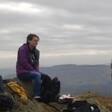Arts and Culture 21 October 2013
In a hard-hitting new interview for Le Mur a des Oreilles, a program on Belgian station RadioPanik, Palestinian actor Saleh Bakri (seen in the above trailer for Annemarie Jacir’s When I Saw You) delivers his clearest statement yet of his political commitment and rejection of the Israeli state’s use of cinema as a propaganda tool.
In the interview, the star of films such as When I Saw You and Salt of This Sea describes his childhood desire to be a painter, his initial reluctance to act, and his family’s major position in Palestinian theater and film.
Saleh Bakri’s father, Mohammed Bakri, is an award-winning actor and high-profile director, and his two brothers are both up-and-coming actors. Saleh himself has also appeared in international productions such as Moroccan production La Source Des Femmes and a new Italian crime drama, Salvo.
In the past, Saleh Bakri has appeared in Israeli films – most notably The Band’s Visit – and was once voted “sexiest man in Israel.”
But, he says, he opposes the way his appearance in Israeli films has been manipulated to “make Israel look good” and to appear as a diverse and democratic state.
The defining moment seems to have come with the legal action taken against his father, Mohammed Bakri, for making the documentary Jenin, Jenin, which exposed Israeli war crimes during 2002’s “Operation Defensive Shield.” The film was first censored, and although legal action allowed it to be screened in Israel, Bakri was then sued for 2.5 million shekels ($706,235) for libel by soldiers named in it.
Palestinian, not Israeli
In lifting the censor’s ban on the film, the Israeli high court called the film a “propagandistic lie” for allegedly showing only one side of the events of the 2002 massacre. Bakri responded by pointing out that almost all Israeli films have ignored Palestinian points of view without being called one-sided.
According to Saleh Bakri, his father faced a decade of death threats, public censure, legal cases and hate mail over his stance, but “not one of his supposed Israeli friends came to support him in court … except the late Juliano Mer Khamis [of the Freedom Theatre in Jenin refugee camp] and Udi Aloni. It made me think a lot about why I participate any longer in Israeli films or Israeli theater if I can’t count on my colleagues to stand with me.”
Ultimately, says Saleh Bakri, he does not identify as an Israeli but purely as a Palestinian and Arab: “I was born a Palestinian and will remain a Palestinian. I don’t believe that I could even be called an Israeli or that any Palestinian could be called Israeli … I care about Palestine as a place for everybody, as a place that was never Islamic, Christian or Jewish.”
In rejecting what he terms the “fascism” he sees growing in Israel, Haifa-based Bakri acknowledges the personal and professional danger of taking a strong position within Israel, but also insists that he wants “to change things … in a way I am happy to have come to such a decision. It gives me more energy.”
Saleh Bakri’s full interview with writer and activist Frank Barat can be heard online at the Le Mur a des Oreilles website, where a transcript is also available.






Comments
Saleh Bakri Interview
Permalink Antoine Raffoul replied on
Palestinian conviction from a principled actor who is simply a Palestinian. This persistence in the belief that only justice and humanity will eventually make Israel realise that it cannot stop our right "To Return".
Courageous
Permalink Peter replied on
"....I care about Palestine as a place for everybody, as a place that was never Islamic, Christian or Jewish.”
This is our goal for the 21st century..... GLOBALLY.
One world, one people.